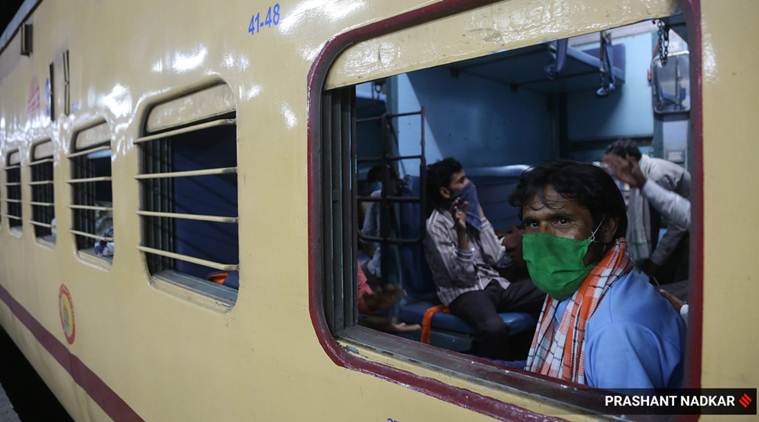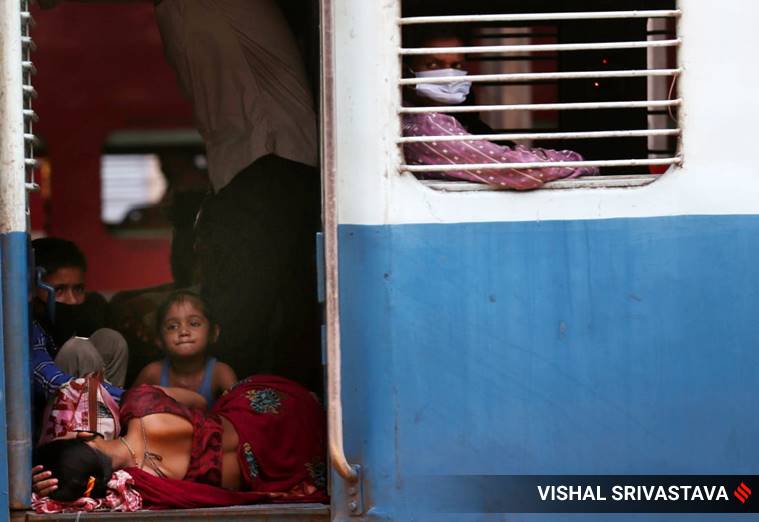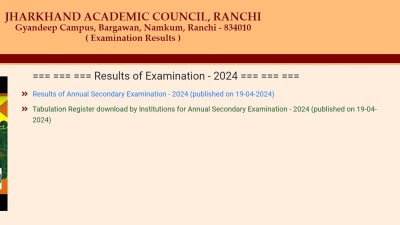- India
- International
Track surge: 40 per cent Shramik trains late, average delay 8 hours
The delayed trains were mostly bound for Bihar and Uttar Pradesh and other Eastern India states. The 78 trains that that were a day or more late were mostly from Maharashtra (36) and Gujarat (17).
 The sudden surge on the tracks and the lockdown challenge has upended schedules leading to delays across the network.
The sudden surge on the tracks and the lockdown challenge has upended schedules leading to delays across the network.
For lakhs of migrants, a seat on board a Shramik Special is a precious ticket to hope — and the promise of home. Every minute weighs heavy especially when the timetable is up in the air.
The sudden surge on the tracks and the lockdown challenge has upended schedules leading to delays across the network.
An analysis of records from several sources by The Indian Express shows that of the 3,740 Shramik trains that ran since May 1 — carrying 20 lakh passengers — about 40 per cent were recorded as late. The average delay worked out to about eight hours.
A total of 421 trains were delayed for 10 hours or more.
Around 10 per cent, or some 373, Shramik Specials were late by 10-24 hours. There were 78 trains delayed by a day or more.

There were 43 trains that were delayed by 30 hours or more and some added two days or more over and above their scheduled journey times.
The delayed trains were mostly bound for Bihar and Uttar Pradesh and other Eastern India states. The 78 trains that that were a day or more late were mostly from Maharashtra (36) and Gujarat (17).
READ | Ex-Railway tribunal chief: Can compensate kin of Shramik victim under ‘eggshell’ rule
A Shramik train from Madgaon in Goa to Jiribam in Manipur which started on May 21, took almost 50 hours beyond its scheduled 60.
Key to the delays have been the sudden surge in track congestion, the lockdown-induced logistical challenge and flexible stops. There were cases where the super-cyclone Amphan also diverted routes.
Explaining the delays, P S Mishra, Railway Board Member Traffic, underlined how the capacity on a particular stretch of the network is fixed in terms of the number of trains it can carry over a 24-hour period.
“When all trains have to go to Uttar Pradesh and Bihar from Gujarat, Maharashtra, Kerala and Karnataka, the shortest route is via Bhusawal in Maharashtra to Manikpur in UP. But that route has a certain capacity spread over 24 hours. Now, if you have to run double the capacity and that too compressed in a, maybe, 10-hour slot, there will be congestion and delays,” Mishra told The Indian Express.
Normally, this does not happen because all trains are timetabled and spread over a 24-hour slot. “This is not normal train operation. You have to keep in mind that there are many routes to reach a destination like, say, Chhapra. So instead of keeping a train stranded for hours in this heat, we kept the trains moving through alternate routes. There are delays in boarding and deboarding following all protocol, then terminals have limited capacity to receive a certain number of trains at a time. All this adds to delays,” Mishra said.
READ | Experts criticise Covid handling: Community transmission has set in
 A Shramik train from Madgaon in Goa to Jiribam in Manipur which started on May 21, took almost 50 hours beyond its scheduled 60.
A Shramik train from Madgaon in Goa to Jiribam in Manipur which started on May 21, took almost 50 hours beyond its scheduled 60.
At the official briefing Friday, Chairman, Railway Board, V K Yadav said: “We have given a lot of flexibility to states as well as our officers in running these trains. So unlike normal trains, these can be extended, or short-terminated; their routes can be changed, or stoppages altered, as per the need of the passengers.”
As summer temperatures rise, the delays add to the stress of the journeys, sources said, since availability of food and water is unpredictable. There have been several reports of cooked food going bad while waiting for delayed trains.
An official of the Indian Railway Catering and Tourism Corporation said that in one case, cooked food for around 60 trains went bad as the trains they were meant for arrived inordinately late in Kanpur. “Passengers then had to be given packed snacks and other items in emergency as a second batch prepared for subsequent trains,” said an official.
The Railways recently revised financial powers of Divisional Railway Managers to allow them to spend Rs 1 lakh on each train to provide food and water. Some divisions are even asking passengers to send their locations on WhatsApp so that they can know where they train exactly is so and the approaching divisions can plan meals.
There have also been complaints that state officials were not clearing trains at destinations quickly which was leading to a pile-up at end points. For instance, state authorities in Madhya Pradesh took two hours to empty the Shramik Special from Katra in Jammu to Maharaja Chhatrasal Chhatarpur railway station in MP earlier this week, data shows. The train had 2,345 passengers. Zonal officials said such delays were common in smaller stations and were adding to the congestion.
Apr 19: Latest News
- 01
- 02
- 03
- 04
- 05






































